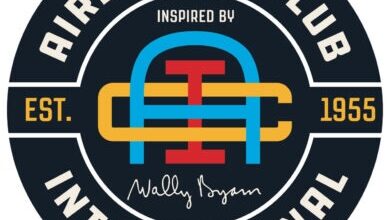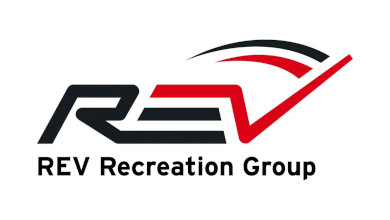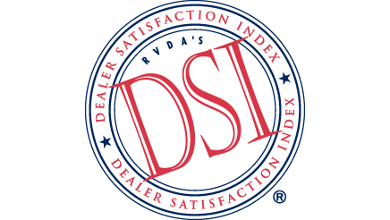Oliver Travel Trailers’ Ollie Effect: Durable Fiberglass Campers Built for Adventure
Tennessee-based Oliver Travel Trailers uses advanced double-hull construction and in-house production to deliver sturdy, tow-efficient campers for dealers and consumers.
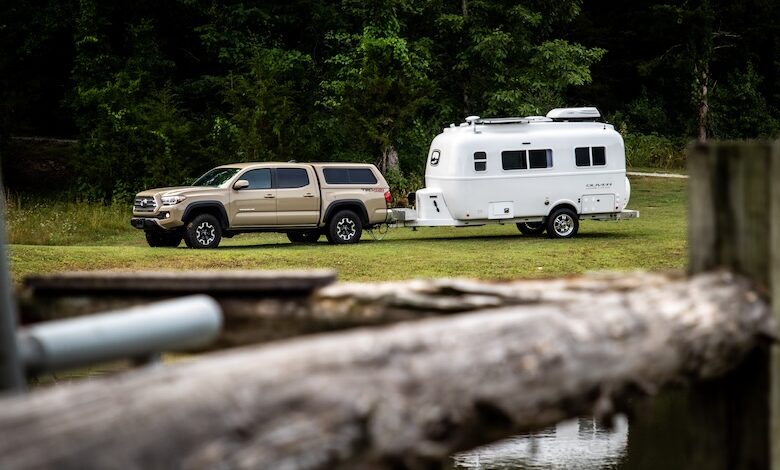
If an RV’s owners bestow it with a nickname, it’s probably a good sign. That’s true with Oliver Travel Trailers, whose growing fan base affectionately refers to the sturdy fiberglass luxury campers as “Ollies.”
A relatively young, family-owned company, Oliver Travel Trailers (OTT) is based in Hohenwald, Tennessee, about 80 miles southwest of Nashville. The distinctive-looking trailers featuring curved corners and sleek sides are designed to boost towing efficiencies.
The company did not take the typical route into travel trailer manufacturing. That shift came in result of the needs of the family’s other companies, Oliver Technologies and Oliver Fiberglass Products.
Scott Oliver, who co-owns the company along with his brother, John, says the company’s initial business involved the production of foundation products to secure manufactured homes. His dad, Jim, who retired in 2018, moved the company to Tennessee from California in 1995. The move into travel trailer production was gradual, and not without challenges.
“If you look at Nashville, Tennessee, it is about 500 miles from North Carolina, Florida, Michigan and Texas, which is about 80% of the manufactured home industry. As we were growing that business, we would travel around showing installers how to use our products.”
Building Durable Campers From Real-World Needs
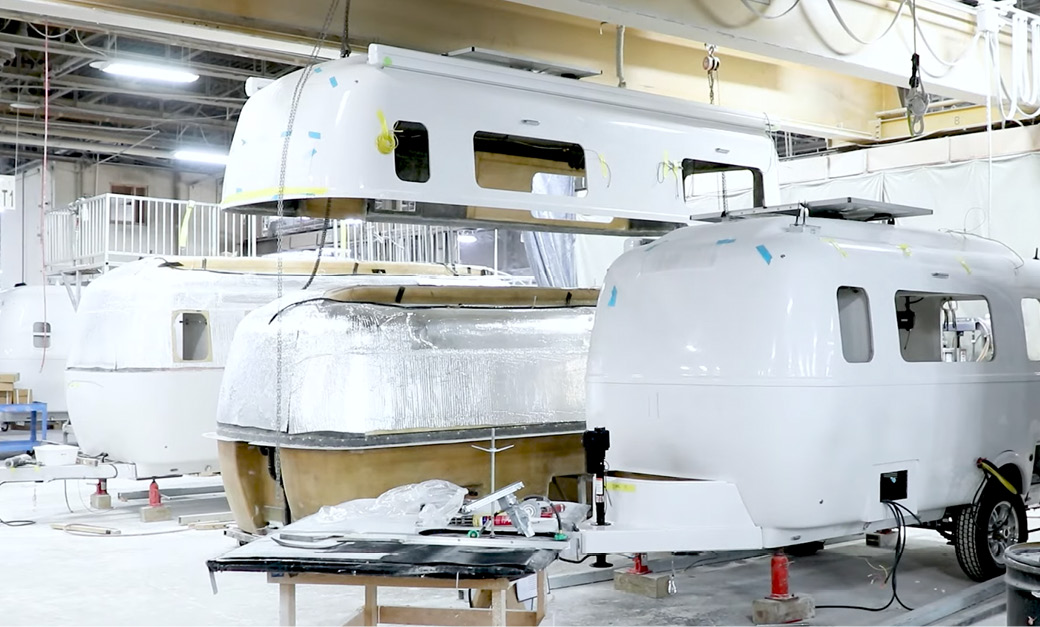 The travel trailer business arose from a need that developed while the company was servicing its manufactured homes business — OTT bought several campers for its representatives to serve the segment in remote areas. Those campers were used heavily and didn’t hold up well over time because they weren’t designed to take that kind of beating. The Olivers eventually decided to build their own durable trailers.
The travel trailer business arose from a need that developed while the company was servicing its manufactured homes business — OTT bought several campers for its representatives to serve the segment in remote areas. Those campers were used heavily and didn’t hold up well over time because they weren’t designed to take that kind of beating. The Olivers eventually decided to build their own durable trailers.
“The family was up in Highland Park, near the Montana-Idaho border, doing some elk hunting,” Oliver recalls. “While we were there, they had a foot of snow on the ground, and it was cold. Pipes were freezing, among other challenges. We got to talking about whether we could develop a camper that would stand up to what we were putting them through. That kind of started things in a new direction.”
With the help of boat builders, Scott Oliver’s father, Jim, and his uncle, John, developed a prototype in a garage on the family farm. The first camper was ready in 2007, but just as the company was set to grow, the Great Recession hit.
“We mothballed the company in 2009, because of what was happening in the industry, and reopened in 2014,” Oliver says. “Dad had retired by that time, and between him, my brother John and myself, we opened it back up and started growing the company again.”
From Factory-Direct to Dealers: A Growing Network
Oliver Travel Trailers has been a factory-direct seller for most of its existence. That changed in late 2023 when the company, responding to customer needs, launched a dealer network. That network, now at 14, is scattered throughout the U.S.
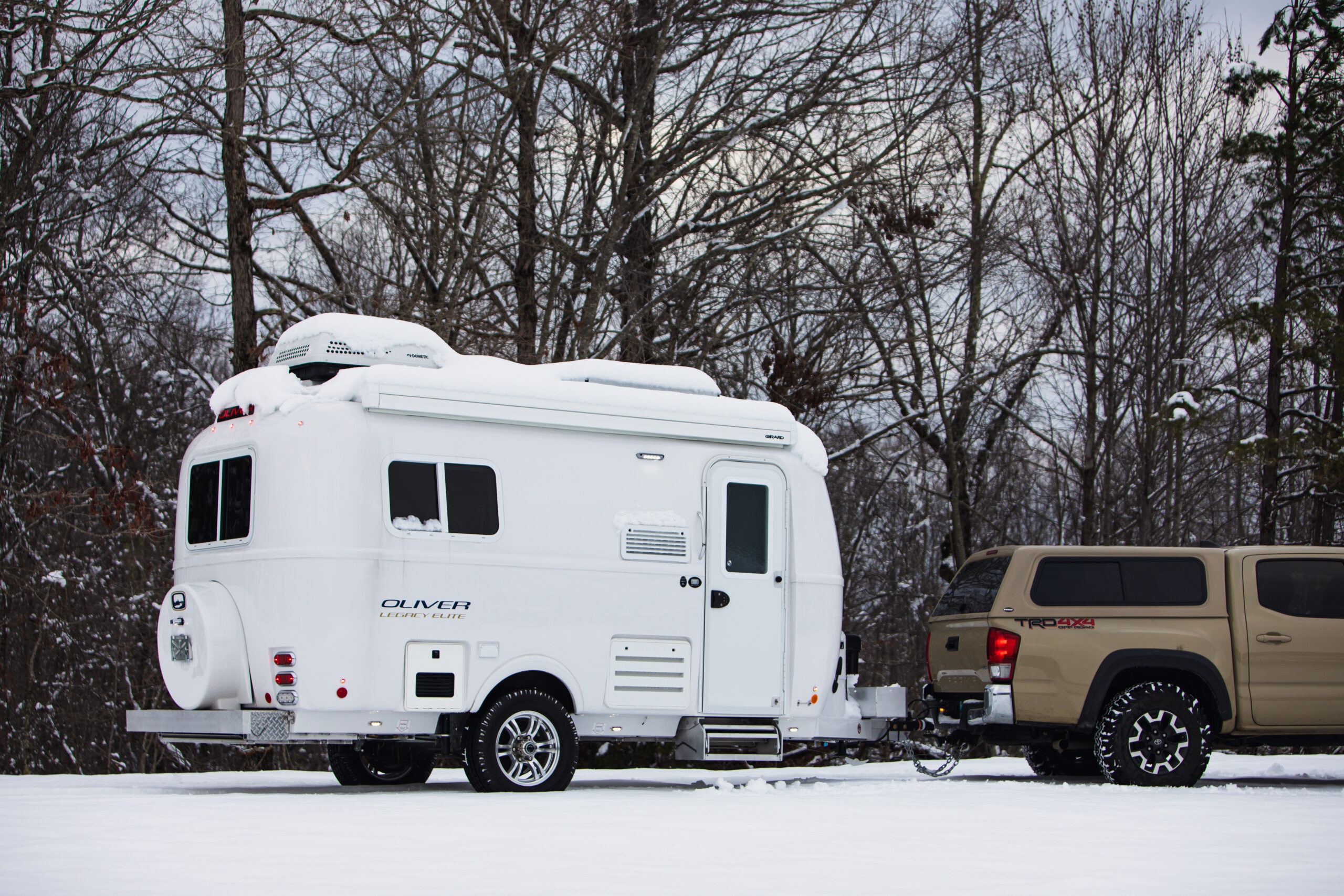 “We found that certain customers could not come back to Tennessee as often as we would like, so we began to partner with dealers,” Oliver says. “We work with dealers such as Lazydays in Florida, with three locations, and Bretz RV in Montana, Idaho and Washington.”
“We found that certain customers could not come back to Tennessee as often as we would like, so we began to partner with dealers,” Oliver says. “We work with dealers such as Lazydays in Florida, with three locations, and Bretz RV in Montana, Idaho and Washington.”
The current number of dealers is the right number for now. The company may gradually add to the network.
“It is more about helping the dealers we have, building those relationships and educating the dealers and customers,” Oliver says. “One of the challenges is getting our expertise into the hands of our dealers and their sales teams, to be able to share all of the unique qualities and aspects of the Oliver camper, so that it makes it to the potential owners, so that they understand why it costs what it does, and what are the features and benefits that we put into each one.”
Oliver says the new dealer network has allowed the manufacturer to boost its customer service. Customers can see trailers at a dealership lot rather than traveling long distances to the plant in Tennessee.
“We still have our flagship location here in Tennessee, where we promote our products,” he says. “We still have interested visitors who want to learn more about our campers, and we take them on a factory tour. It has been a transition for us, going from straight consumer direct to dealer model, so as with any new process, there are always bugs to be worked out. We feel comfortable working through those with our dealer partners.”
Crafting Campers Made To Tour America
The Olivers produce their trailers in an approximately 330,000-square-foot facility. The parent company, Oliver Fiberglass Products, also manufactures its line of Safe Step walk-in bathtubs in the same building. Trailer production fluctuates, but on average, Oliver builds two to three campers per week.
“We have a lot of background in the fiberglass industry,” Oliver says. He notes that the company’s central Tennessee location offers an ideal logistics platform from which to serve several neighboring states.
Oliver Travel Trailers’ primary differentiator is its double-hull construction. The trailers have two inner shells and two outer shells, similar to a boat.
“This allows you to be a true four-season camper, because the electrical and plumbing components are located between the inner and outer shells, instead of protruding below the camper,” Oliver says. “The shells are bonded together, and the overhead compartments and seating are molded in, so when you are traveling, you don’t have the possibility of those coming loose or separating from the floor or walls.”
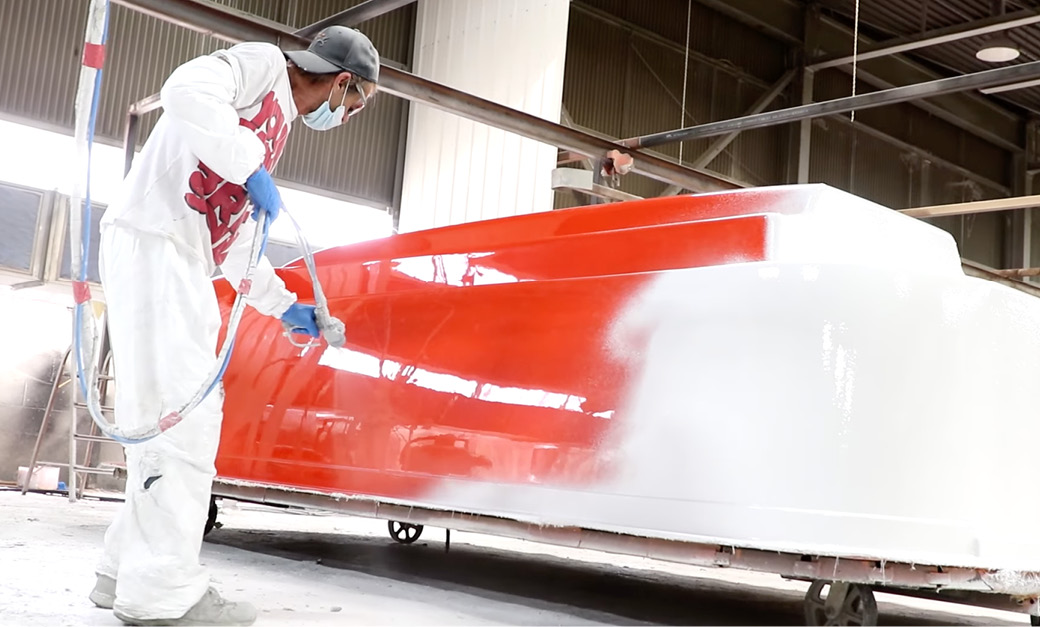 OTT’s construction process starts from the ground up. It builds on frames, in-house.
OTT’s construction process starts from the ground up. It builds on frames, in-house.
They are constructed with a 2-inch-by-5-inch quarter-wall tubing, with a 3-inch-by-5-inch-by-5/8-inch thick tongue, which is all aluminum. The company then welds a steel chassis for axle assembly that actually bolts onto the aluminum frame.
OTT’s chassis are built out of high-grade, aircraft-quality aluminum, which is less susceptible to rust. Most others are built with steel, the company says. Oliver uses Dexter Nev-R-Lube axles, leaf springs and gas shocks to improve ride quality. The underside of the trailer is enclosed to conceal tanks and water lines from outside elements.
OTT uses leaf spring axles with Dexter E-Z Flex shocks, which Oliver says absorb 80% of the shock traveling down the road. That is a standard feature on both models.
“The fiberglass shells bolt on, and then all your components get placed inside,” he says. “We build all of our own wire harnesses in-house. That helps with that quality control process. Each of our stations on the manufacturing line have a quality process throughout, to make sure each step is done correctly before moving on to the next station.
“Another unique thing is that with our awnings and other components, we actually glass in our aluminum backing plates, so if you are installing a solar panel or air conditioner or other component, we have that glued in, to be well-secured within the fiberglass.”
Oliver describes the company’s typical customer as someone who “wants to tour America.” The trailers sleep three but are primarily designed for couples.
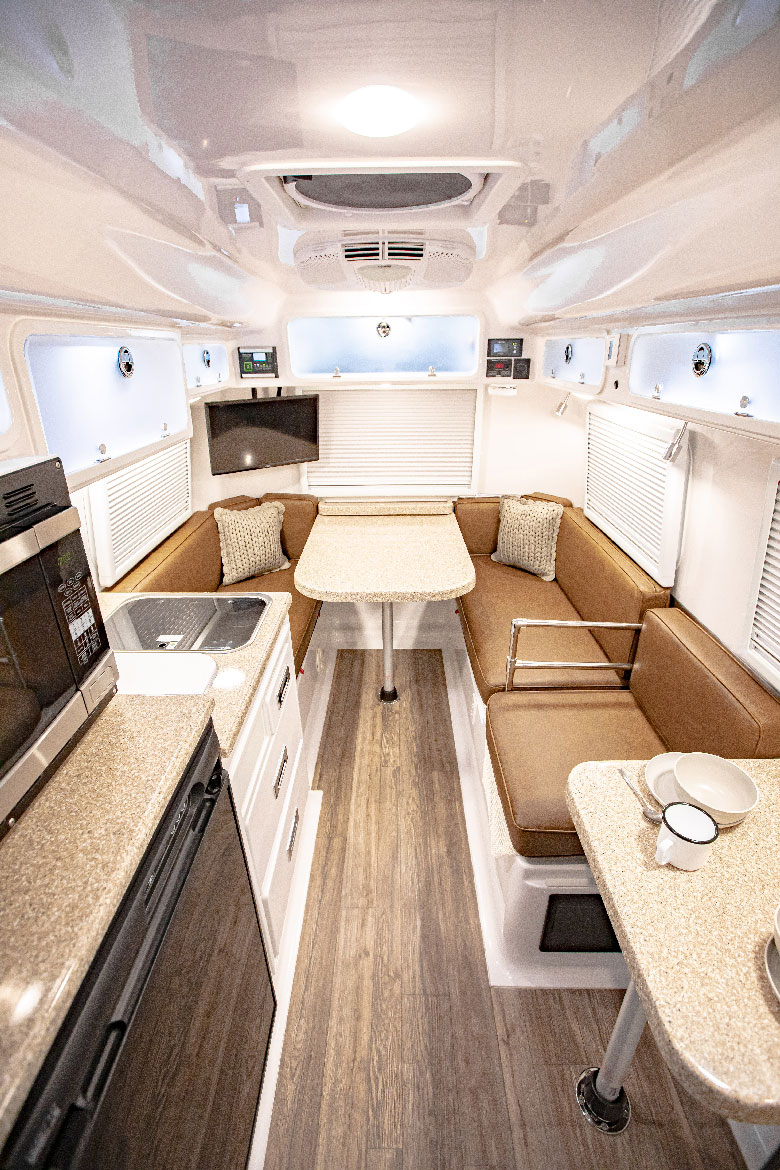 “They are for people who want to explore state and national parks, tour the West or go to Alaska,” he says. “They are easier to tow, because the width has the same footprint as the vehicle towing it, so it has a good line of sight.”
“They are for people who want to explore state and national parks, tour the West or go to Alaska,” he says. “They are easier to tow, because the width has the same footprint as the vehicle towing it, so it has a good line of sight.”
Legacy Elite Campers Designed for Off-Grid Camping
Oliver manufactures two models: the Legacy Elite and Legacy Elite II. The single-axle Legacy Elite is shorter at 18 feet, 5 inches, while the tandem-axle Legacy Elite II is 23 feet, 6 inches. Both come in Premium and Platinum packages.
“We have our premier premium, which is our base model, and then our platinum, which has 85% of the options that people have requested over the years, making it easier for dealers to serve our customers,” Oliver says. “They can still order the premium model and select certain upgrades.”
“My brother (John) and I grew up in this business, and we have been camping our whole lives,” Oliver says. “We love being able to share that experience with others and continue those family values that were instilled in us, the importance of gathering together around a campfire and enjoying the outdoors with family or friends.”
Discussing future projects, Oliver says the company has an opportunity to work on components to help Ollie fans go off-grid. The resiliency of Ollies and their four-hull design make them ideal for off-grid adventures.
“We already have solar and lithium and inverters and so on available on our campers, but we want to help them more, by using a more strategic design to help them go off-road camping.
“Our small family company gives us an advantage and helps us be nimble and be closer to our customers, enabling us to be responsive to their feedback perhaps a bit quicker. This new opportunity we are exploring to expand the off-road components will continue to improve the quality of camping off-grid and has a lot of possibilities for us in the future.”
